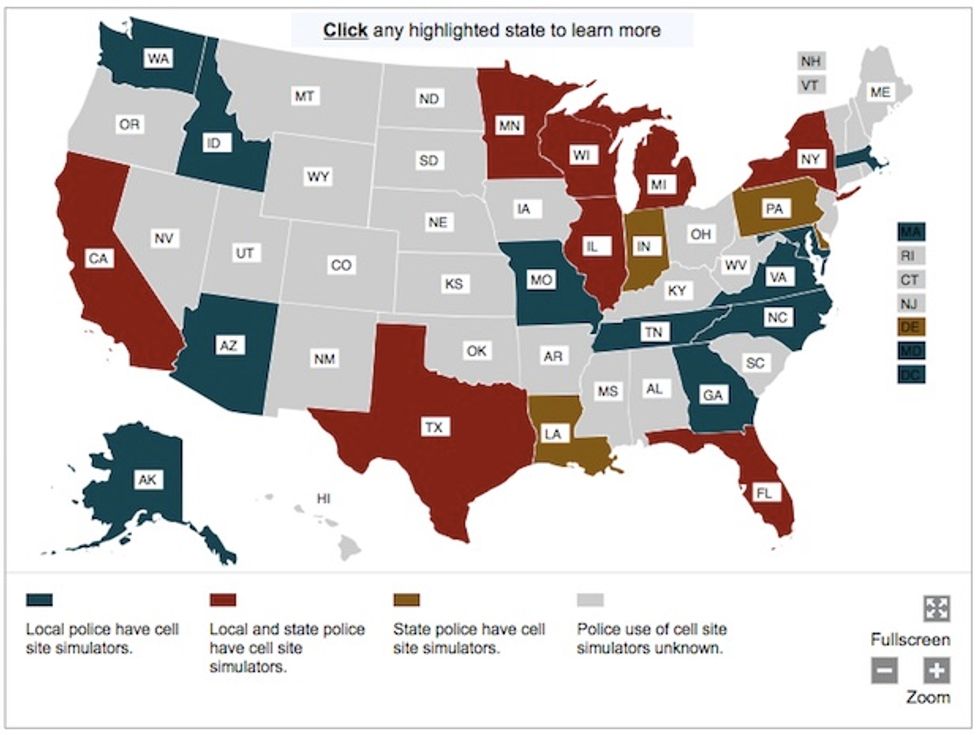
Image source: aclu.org

Sixty government agencies in 23 states and Washington, D.C., are currently using a portable, high-tech scanning device capable of sweeping up the data on citizens' cell phones, including call records, voice mails and text messages, according to the ACLU. And in many cases, they are doing this without a warrant.
Additionally, police departments that use the data-grabbing technology are required by the FBI to keep the tech and its use a secret.
The technology, commonly known as "Stingray" (the name the device is sold under by the biggest manufacturer of these cell phone tower mimicking systems), is not new. In fact, TheBlaze has written about the potential threat posed by secret and widespread use of Stingray-type devices as far back as 2011.
Nathan Wessler, a representative from the ACLU, spoke to TheBlaze about the increasing use of these devices, calling them "very invasive and concerning technology."
"The way these devices are typically used is to surreptitiously track and locate people's cell phones," Wessler told TheBlaze.
Calling it a "quite indiscriminate search," Wessler shared one of the "particularly concerning things" about how Stingray technology is being used by local law enforcement: "Even when they are trying to track a particular suspect's phone, the technology works by sweeping in data from countless bystander phones in the area — it's really a dragnet."
He explained how the system worked, basically mimicking a cell tower and getting phones in the area to send a signal with a unique identifying serial number.
"We often describe it as the kids' pool game 'Marco Polo,'" Wessler explained, adding, "The Stingray yells 'Marco' and every phone in the area yells back, 'Polo, I'm phone 1-2-3-4-5-7-8.'"
"These devices are not just sending signals out into public spaces, but also sending signals that transmit through the walls of homes and other constitutionally protected areas," Wessler said.
Speaking about law enforcement's secrecy cloaking the use of the cellular data scanning technology, Wessler told TheBlaze, "I've never seen this kind of dynamic with any other kind of law enforcement surveillance technology."
He explained further: "Every time a state or local police agency wants to buy one of these devices from a private corporation ... the FBI forces the police department to sign a very strict non-disclosure agreement."
Inside the FBI's non-disclosure agreement are specific limitations forbidding the local police departments from revealing the purchase or use of the device to the public to judges to defense attorneys and in court hearings, according to the ACLU.
Wessler added, "Incredibly, they have to promise that if a judge is about to order them to actually answer questions and reveal information, they have to be willing to either dismiss the prosecution outright or get rid of it some other way, like offering a sweet plea deal."
Listen to the ACLU's Nathan Wessler explain why this technology threatens our individual liberties:
—
Follow the author of this story on Twitter and Facebook: